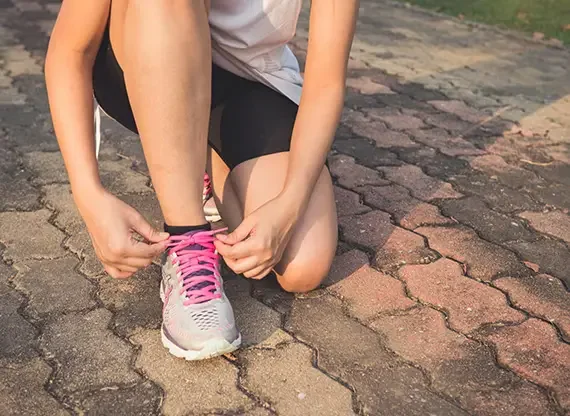
August 23, 2021
Studies in the UK show that the pandemic has significantly decreased physical activity. Not a surprising finding - considering that many of us were tied to home office and only took walks between our desk and fridge. Sadly, the trend towards less movement and increasing unhealthy food intake has not been triggered by the pandemic first. Already in pre-Covid times unhealthy lifestyle habits were on the advance and leading to widened prevalence of chronic diseases. Increasing inactivity and unhealthy eating can be considered as an ongoing pandemic itself. The WHO projects that by 2030 the proportion of total global deaths due to chronic diseases increased to 70%.
These numbers emphasize that healthcare should not be about intervention only but about prevention, too. Caring about one’s own health is not only treating diseases but also embracing healthy behaviors in day-to-day living to prevent chronic conditions. However, it is especially the latter aspect more and more people globally are struggling with. To provide support and relief to these people digital behavior change solutions can play a crucial role. The challenge however is to build digital tools which are creating meaningful and sustainable behavior changes. To build such solutions and make sure people actually use them, a multi-disciplinary approach is needed that brings designers, behavioral scientists, and data scientists to one table.
At Bayer G4A’s Digital Health Forum on September 9, the panel “Designing for Impact and Outcomes: A Conversation in Behavior Change” aims to facilitate this inter-disciplinary exchange. The conversation features Geetu Ambwani (Data Scientist), Dr. Clare Purvis (Headspace), Dustin DiTommaso (Mad*Pow) and is moderated by Dr. Kate Wolin (Optum). The panel examines what it takes to build effective solutions that are creating meaningful changes and discusses the role of data in designing them. Moreover, the conversation sheds light on in which aspects and how data science, behavioral science and design need to effectively cooperate to facilitate behavior change. Sounds interesting? Then do not miss out on the discussion on September 9 and register here for free.